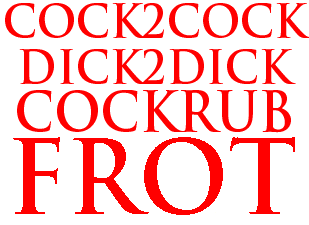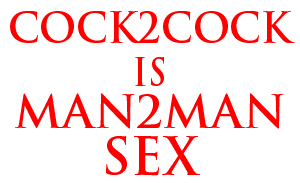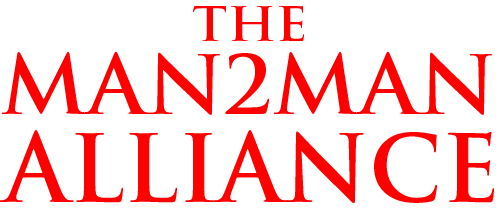




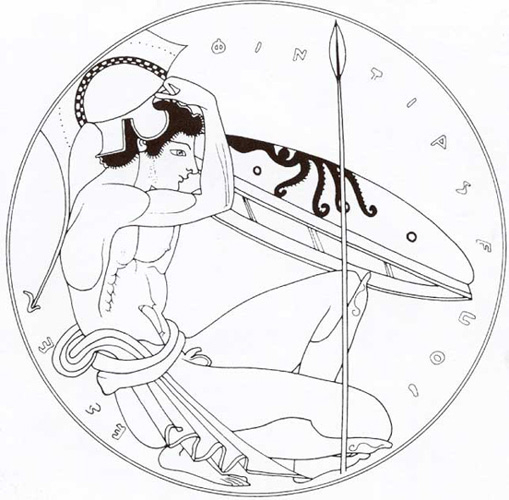
And now a few words from Publius Papinius Statius
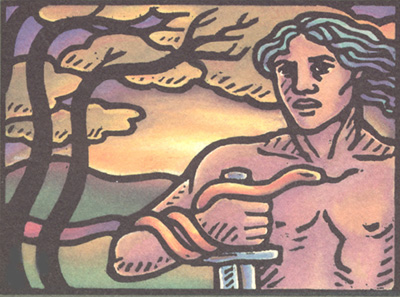


And now a few words from Publius Papinius Statius
1-31-2007
Over the last couple weeks, there's been a fair amount of news -- which I hope to be getting to soon -- that's depressing for those who believe in Masculinity and the True Love of Man for Man.
That being the case, I think it's time for a few words from Publius Papinius Statius.
Publius Papinius Statius -- commonly known as Statius -- was a Roman poet who died in 96 AD.
But dude -- don't the let the words "Roman poet" deter you from reading the rest of this post.
Because if you do, you'll miss some of the hottest writing about MEN -- on the planet.
Statius was a fairly typical man of letters of his age.
He wrote a number of poems -- many of which are very fine.
But his greatest work was his retelling of a Greek myth -- "Seven Against Thebes."
In Seven Against Thebes, two brothers, Eteocles and Polynices, have a falling out over who will rule the Greek city of Thebes.
Eteocles exiles Polynices, who goes to the city of Argos and persuades its king to invade Thebes and restore him to the throne.
Thebes is a city with seven gates, and Polynices -- his name means "much strife" -- recruits seven heroes to battle at each of those gates.
And battle they do.
The story is bloody and violent, and in the end Polynices and Eteocles succeed only in killing each other.
Seven Against Thebes is an epic story.
And to retell it, Statius wrote an epic poem -- the Thebaid.
The Thebaid, which was very popular throughout antiquity and the Middle Ages, isn't much read today.
But it's a dynamite work, and more to our point, it's incredibly homoerotic.
Not that there's any homosex in the book.
There isn't.
There's no heterosex either.
Instead, Statius creates a sustained and indeed unrelenting homoerotic tension which permeates the poem.
Why?
Why homoeroticism?
Because Seven Against Thebes -- the Thebaid -- is a story of male-male conflict and aggression -- carried to the max.
And I do mean to the max.
These guys strip and fight naked at the least provocation.
And in those naked fights they go for maximum and mutual destruction.
There's blood and gore everywhere.
Towards the end one of the heroes literally eats the still-warm brains out of the head of his dead enemy.
It's intense.
And, as you'll see, it's erotic.
Statius clearly understood the aggressive underpinnings of male-male eroticism.
Or, if you prefer, the homoeroticism underpinning male-male aggression.
They're two sides of the same coin.
Which is why attempts to find cures for "homosexuality" will always fail.
Because male-male sexuality -- man2man -- is part of being a Man.
You can't divorce homosexuality, as we call it, from sexuality in general, and you can't divorce it from aggression.
And if you deprive the male of his sexuality and his aggression -- you no longer have a Man.
You have a eunuch -- at best.
So it's like Redd says: We're all homo sexual because we're all homo sapiens.
Here are a couple excerpts from the poem.
The translator is A. D. Melville; his translation is out of print, but you can find the book used, and there are a couple other translations out there as well.
In this first excerpt, the heroes Polynices and Tydeus meet in a fight.
They're both exiles, they're homeless, they're road-weary, and they come to blows over a place to sleep:
Here on them both the wheel of fortune brought
First a brief pause for threatening words, then rage
Taller and towering stood the prince of Thebes,
Then, as they battle, blow on blow is struck
"frenzy and bloodshed"
"stood stripped to fight"
"knees are flexed to bruise soft sides and loins"
"hot with men's raw sweat"
See what I mean?
And Statius is just getting started -- that's in Book I and there are twelve books.
Notice also that Tydeus, who's one of the greatest and most brutal of the Greek heroes, is described as having a "tiny frame."
That's based on the Iliad, which was written perhaps nine hundred years earlier.
In the Iliad, the goddess Athena approaches Tydeus' son Diomedes, and says
Tydeus got him a son who is little enough like him,
[Iliad, v 801]
Athena then persuades Diomedes to attack the war god Ares, who is, as it happens, his great-grandfather.
Diomedes, in other words, is a chip off the old block, and size doesn't matter.
The Greeks knew that it wasn't the dog in the fight, it was the fight in the dog.
Let's get back to Tydeus and Polynices, who are naked, bloody, and ardently kneeing groins while trying to gouge each other's eyes out.
They're interrupted in those endeavors by the king of Argos, who having come upon "a sight
'Come now, have done with menaces that night
So: the king says, "Your present rage perhaps
And that's exactly right.
I've often spoken of the true, manly, male bond being a passage through rage to love.
That's what happens here.
The king realizes that the coming of these men fulfills a prophecy about who will marry his two daughters.
He immediately prepares a feast; gets the guys clean and comfortable -- "Placed apart the two
-- and brings in his daughters -- who he then gives them in marriage.
Now Polynices and Tydeus are related through marriage, and these brothers-in-law become true brothers of the heart and inseparable companions, as we see a few pages later:
[Polynices] hurried from the well-loved room to speak
"sharing each battle in his faithful heart,
The implication is inescapable: the love that binds them is strong because they fought.
Or, as the king says, rage -- not anger, but rage expressed in physical and brutal male aggression -- foretokens Love.
The Greeks understood this well -- that for the male, sex and aggression are linked.
Now, let me be clear about this:
"A passage through rage to love" does NOT mean that every time two guys fight they fall in love with each other.
That's not true in the UFC, though those fights often end with a hug; and it's certainly not true for warriors, who usually are trying to kill each other.
But on occasion, in what is for these men a one-time and life-changing event, love does follow strife.
So: "A passage through rage to love" refers to what is usually for the Greeks and other warrior peoples like the Celts a SINGULAR event.
Something which happens once in a lifetime, usually in the ardor and impulsiveness of youth, and which results in an eternal warrior bond between the two men.
Frenzy and bloodshed; neither would endure
to share a roof to ward the night away.
Swelled as taunts flew, and both sprang to their feet
And bared their bodies and stood stripped to fight.
Proud in his prime, but soul and strength no less
Supported Tydeus; in his tiny frame
Through every limb a greater valour reigned.
On face and forehead, thick as arrows fall
Or Arctic hail, and knees are flexed to bruise
Soft sides and loins. Like, when the years bring on
Jove's contests at Olympia and the dust
Is hot with men's raw sweat and, seated round,
Crowds urge the young lads on with rival cries,
And mothers wait outside to hail the prize,
So those two charged, fired by no love of fame --
Hate was the spur -- and deep into each face
The fingers scratch and probe and penetrate
Their flinching eyes.
since Tydeus was a small man for stature, but he was a fighter ...
keeping that heart of strength that was always within him ...
Of terror, faces torn, cheeks bruised and smashed,
Streaming with blood," determines to make peace between them:
Or sudden wrath or valour prompted. Pass
Beneath my roof. Shake hands to prove your hearts.
There's meaning in this business and the gods
Are not aloof. Your present rage perhaps
Foretokens future love, a memory
To warm your hearts.' Nor were the old man's words
A vain presage. This comradeship of wounds
Issued in such fine trust as Theseus had
Who shared high risks with fierce Pirithous,
Or Pylades who, when Orestes' mind
Was gone, preserved him from the Fury's rage.
So then the turmoil in their hearts was soothed
By the king's words, as when the ocean's deeps
That winds have made their battleground subside,
Yet still in drooping sails one lingering breath
Is long to die, and both with a good grace
And hearts at ease entered the royal abode.
Foretokens future love, a memory
To warm your hearts."
Young men recline, their wounds now washed and dry.
Each sees the bruises on the other's cheeks
And each in turn forgives";
Sadly to Tydeus, now his partner, now
Sharing each battle in his faithful heart,
So strong the love that bound them since they fought...
So strong the love that bound them since they fought"
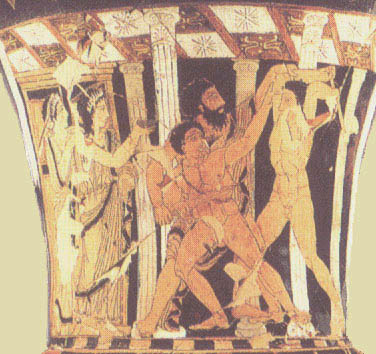
The Fight
Polynices on the right, Tydeus to the left, and the King in the center
There are many warrior pairs like this in Greek myth.
As Statius says, "This comradeship of wounds
Issued in such fine trust as Theseus had
Who shared high risks with fierce Pirithous,
Or Pylades who, when Orestes' mind
Was gone, preserved him from the Fury's rage."
Theseus and Pirithous
Orestes and Pylades -- who we talked about in The Dutch Experiment.
Achilles and Patroclus
These were powerful examples for the Greeks -- and the Romans -- of the warrior bond.
Now, a number of chapters later, the Argive warriors are holding games.
And they get to the boxing:
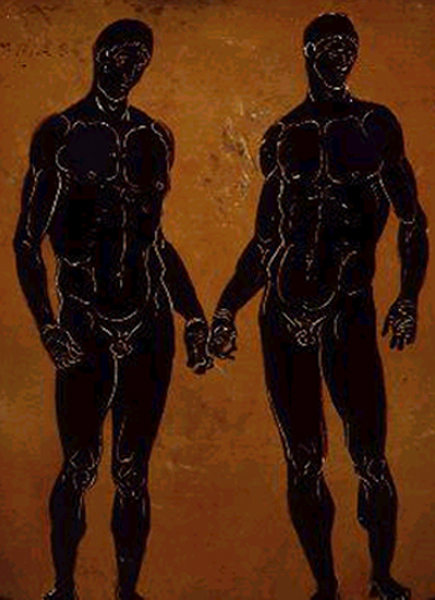
Monstrous to see and striking monstrous fear
Capaneus stood forth and bound on hands and
Straps of raw oxhide, black with studs of lead,
Himself no softer. 'Give me one', he roared,
'Of all these thousands! Would my rival were
A Theban I could rightly do to death,
And not stain my fine strength with Argive blood!'
They stood aghast and terror kept them dumb.At length from Sparta's naked ranks there sprang
Alcidamas, to their surprise, and made
The Dorian princes marvel, but his friends
Knew he'd grown up in Pollux' boxing-ring
And trusted in his trainer. Hands and arms
Pollux himself had guided -- limbs he loved! --
And sparring with him many a time admired
His matching fury and, exultant, snatched
Him up and pressed him naked to his chest.
So: the Spartans are naked -- as they would have been -- and from among them comes Alcidamas to answer the challenge.
Alcidamas has been trained by Pollux -- whom the Greeks called Polydeuces -- and was loved by him:
"many a time admired
His matching fury and, exultant, snatched
Him up and pressed him naked to his chest."
"matching fury" is what turns Pollux on.
He exults in it.
To the point of giving his student a big, hard, naked, hug.
The implication of course is that Pollux and Alcidamas were lovers.
What follows in the poem is an account of the sort of boxing which Statius and his readers would have seen at athletic competitions -- not gladiatorial games but true athletic competitions between free men -- in Rome:
Capaneus disdained his challenge, mocking him
As if he pitied him, and laughing called
For someone else, but forced at last to fight,
Faced him and anger braced his bulging neck.
Poised on tip-toe at their full height they raised
Hands thunder-charged, their faces safely tucked
In sheltering shoulders, watching all the while,
No way for wounds left open. Capaneus
Stood fierce and huge with his enormous frame
And far-flung length of limb, as though from Hell
The giant Tityos should rise, if the grim birds
Granted him leave. The other, still a lad,
Had yet matured in strength beyond his years.
His youth's fine spirit promised a great prime;
None wished to see him lose -- cruel bloody sight! --
And with a heartfelt prayer all feared the fight.Each measured up the other, hoping for
An opening; no blows yet in anger struck.
Fear for a while was mutual, caution still
Mingled with fury as they lightly sparred,
Glove rubbing against glove, the bright sheen dulled,
Both of them testing. Better trained, the lad
Postponed his onslaught and reserved his strength,
Fearing what lay ahead. But Capaneus,
Squandering, reckless, hurled himself, both hands
Flailing, teeth vainly grinding, towering up
To his own damage. But with skilled foresight
And all his country's clever vigilance
The Spartan dodged and parried, safe and sound
By ducking swiftly or deflecting each
Assault, feet pressing forward, face held back.And often too he met the unfairness of
His rival's strength -- such practised skill he had,
Such stalwart talent --- by a daring dart
Under his guard and then leapt up and loomed
High over him. As leaping breakers dash
Against a threatening rock-face and fall back
Broken, so he wheeled round his furious foe
Battling. He kept his leading arm outstretched
To threaten eyes and ribs, and tricking thus
His rival's guard implanted cunningly
A sudden hit, a wound that marked his brow.
Blood drawn! Across his temples a warm line!
Not yet aware, a sudden rolling cheer
Bewildered him, but when he chanced to wipe
His face with his tired hand and saw the red
Stripe on his glove, no lion raged so wild
Or tigress wounded by a hunter's spear.
He drove the young lad right across the field,
Gnashing his teeth in ghastly fury, till
The lad was toppling, almost on his back,
As whirling hands struck time on time. The blows
Were wasted on the wind or fell on gloves.
The Spartan, moving nimbly, warded off
A thousand deaths that showered on his head,
And swift feet helped, but he, his skill recalled,
Fought as he fled and fleeing still struck back.Now both of them are panting and distressed;
Pursuit is slower, flight is not so swift;
Knees fail the two of them, both stop and rest.
So roaming sailors worn by long sea-Ianes
Welcome the signal given from the poop
And rest their oars awhile; but rest scarce theirs
When to the oars they're summoned once again.A second frenzied rush! But he got clear
And, crouching, charged himself and Capaneus
Pitched on his head and as he rose the lad
Dealt him a wicked blow again and stood
Pale-cheeked to see his handiwork so good.The Argives shouted; never shores or forests
Gave such a roar. But when Adrastus saw him
Struggling to rise, shaking his fists, intent
On deeds insufferable, 'Quick', he cried,
'Quick, friends, he's mad. I beg you, hold him back
And bring the palm and prize. He'll never stop
Till the lad's skull is crushed into his brain.
Rescue the poor doomed Spartan!' In a trice
Tydeus sprang forward and Hippomedon
Answered his call. Those two with all their strength
Hardly restraining those two hands of his,
Pleaded, 'Stand back! You've won! It's a fine thing
To grant life to the loser. This lad too
Is one of ours, our comrade in the war.'
No bending that great prince! He thrust away
The palm and breastplate offered him and roared,
'Hands off in clotted grime and gore I'll crush
Those girlish cheeks with which he charms so well.
I'll send his body shapeless to the tomb
And give his Spartan trainer cause to mourn.'
He swelled with rage and claimed he hadn't won,
But his friends forced him back and, countering,
The Spartans praised their splendid son with cheers
And mocked those menaces with long loud jeers.
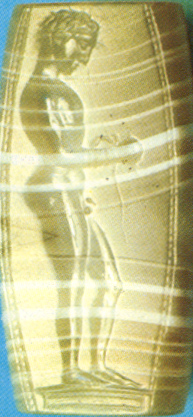
|
MAN to the max.
"A sudden hit, a wound that marked his brow.
Blood drawn! Across his temples a warm line!
Not yet aware, a sudden rolling cheer"
The first blood brings a roar from the crowd.
And the naked Spartans are indifferent to the loser's jibe about their champion's "girlish cheeks with which he charms so well."
They respond with cheers for Alcidamas and jeers for the sore loser.
The Spartans know what the relationship between Alcidamas and Pollux was about.
Because they've all been there.
And they know there's nothing "girlish" about it.
That's the point.
Alcadamus, like Pollux, is a masculine man who exults in the naked fury of the fight.
Now, Statius is not going to just leave us with brutal, bloody, naked boxing.
He follows it with brutal, knee to the groin, naked wrestling, the combatant bodies coated with oil, sand, and hot raw sweat:
Long since had great-souled Tydeus felt the goads
Of others' honours and his own high worth.
Well did he run, well hurl the discus too,
And no less skilled in boxing, but his heart
Set wrestling far above all other sports.
So when the call of fame fired young men's hearts
To wrestle, Tydeus doffed his awesome cloak,
The boarskin of his homeland. Challenging,
Agylleus reared his height, boasting descent
From Hercules, of Herculean bulk,
So tall huge shoulders towered, so monstrously
Beyond all human measure, but he lacked
His father's steely strength. Those limbs of his
Were fat and flabby, drifting loose and limp.Hence Tydeus' daring confidence to beat
That great opponent. Though he looked so small,
His bones were massive and his arm-muscles
No easy matter. Never in frame so slight
Has nature dared enfold such fiery might.
Their bodies glad with oil, they both made for
The middle of the ring, then dried damp limbs
With sand, alternate handfuls, robes of dust,
And hunched their heads and held their cunning arms
Outstretched. Tydeus, crouching, his knees almost
Touching the sand, with clever skill made tall
Agylleus stoop to his own height, but he
As a huge cypress, queen of Alpine peaks,
Bows to the wild south wind, roots scarce secure,
And nears the ground but soon will rise again
Skywards, so towering Agylleus bent
Over his little foe. Then both in turn
Clutched at necks, flanks, chests, shoulders, foreheads,
Eluding legs. At times they hung there locked
In a long clinch, then broke the fingers' grasp,
As savage as the leaders of the herd,
Two bulls in ghastly battle. In the meads
Stands the white heifer waiting for the winner,
While chests are torn in frenzied clash and love
Applies his goads and heals the wounds' sharp pain.
So boars will fight with lightning tusks, so bears
With ugly clutches wage their furry feuds.
Tydeus still kept his strength, his limbs untired
By heat or dust; on muscles trained for toil
His skin was taut. Agylleus, far from fit,
Gasped in distress and panted heavily,
And as the sweat washed off his coat of sand,
Grasped the ground furtively to find support.
Tydeus pressed his attack and feinting at
His neck grasped for his legs, but failed the attempt,
His arms too short, and down upon him came
Towering Agylleus, crushing, burying him
Beneath that giant fall. So in the hills
Of Spain a miner, leaving far behind
The world and the bright daylight, if the earth
That hangs above him trembles and the root
Falls with a sudden roar, lies crushed inside
The rockfall and his corpse has not restored
His angry spirit to its own bright stars.
But Tydeus all the fiercer, gallant heart
Still high above, slipped straightway from the clutch
Of that unequal weight and circled him
As he stood wavering and suddenly
Clung to Agylleus' back and grappled flank
And groin in a swift clinch and clamped his knees
Between his legs, then as he tried to insert
His hand and foil the hold -- such impudence --
Lifted him high, a load most marvellous,
Most terrible. So Hercules, fame tells,
Once held Antaeus sweating in his clutch
When he had found the trick, and no hope then
Of falling, never toe allowed to touch
His mother earth. A roar went up; the ranks
Cheered in delight. Then, poising him aloft,
He loosed him suddenly and let him fall;
Sideways and followed up, hands fastening
On neck, and legs round groin. Beleaguered thus
Agylleus failed and only shame fought on.
At last he sprawled, belly and chest prostrate,
And then, a long while later, sadly rose,
Leaving his shameful imprints in the soil.
But Tydeus with the palm in his right hand,
The prize of shining weapons in his left:
'What if I'd not lost blood in Dirce's'land,
Blood shed in no small measure, as you know,
Where these scars proved just now the troth of Thebes!
Displaying them, he gave his friends his proud
Prizes and for Agylleus came his due,
A breastplate unremarked as he withdrew.
The battle is primal, and primally male.
The athlete-warriors are compared to bulls, boars, and furrily-feuding bears.
Tydeus -- did I mention that his name means "Thumper"? -- has a fierce and gallant heart.
But he also knows the importance of grappling the groin -- what Naked Wrestler calls the Man area.
And that's how Tydeus wins, "hands fastening
On neck, and legs round groin."
While there's a lesson here for boys who might be small in stature:
"Never in frame so slight
Has nature dared enfold such fiery might."
And so it goes: the Thebiad is an unrelenting exercise in unrestrained masculinity.
What the Romans called "virtus" -- Valor.
As was so much of the ancient world.

Now -- I said that in the Iliad, Tydeus' son Diomedes battles his great-grandfather Ares.
I know that's confusing, so here's the way it works from father to son:
Ares --> Oeneus --> Tydeus --> Diomedes
Ares was the Greek god of war -- as one website puts it, he "was the great Olympian god of war, battlelust and manliness."
ARES: GOD OF COURAGE and MANLINESS
I) GOD OF COURAGE & MANLINESS, STRENGTH & ENDURANCE
II) PERSONIFICATION OF WARLIKE-SPIRIT, MANLINESS
Warriors were called henchmen or scions of Ares, and the foremost heroes were often compared favourably with the god.
War, battlelust, and manliness.
That's the Thebiad.
Now, let me make clear that though Statius' telling of this story is intensely homoerotic, he didn't invent that homoeroticism.
It's inherent in the story, which is why it was so popular.
Interestingly, Seven Against Thebes in the original Greek epic version, which so far as I can tell is no longer extant, was a favorite of the Roman Emperor Hadrian, who ruled from 117 to 138 AD.
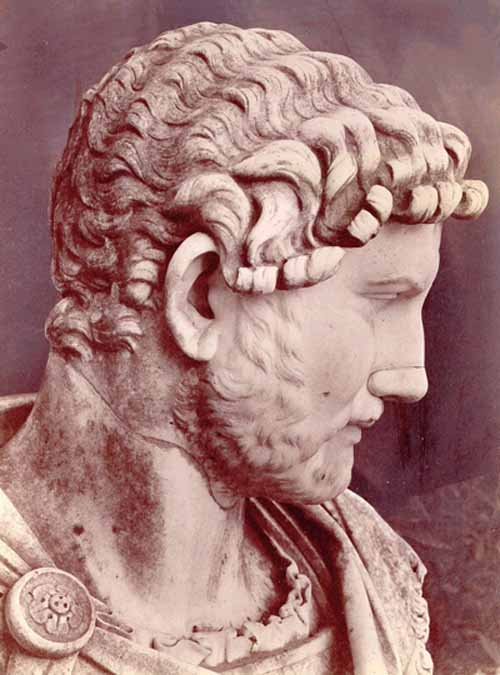
Hadrian is generally considered one of the most exceptional people produced by Rome: in addition to arguably having been the best and most capable emperor, he had an extensive military career; he was a champion of Greek culture; a poet in his own right; a brilliant architect -- he gave the world the Pantheon; and he had a very ardent and very public relationship with a Greek youth -- Antinous.
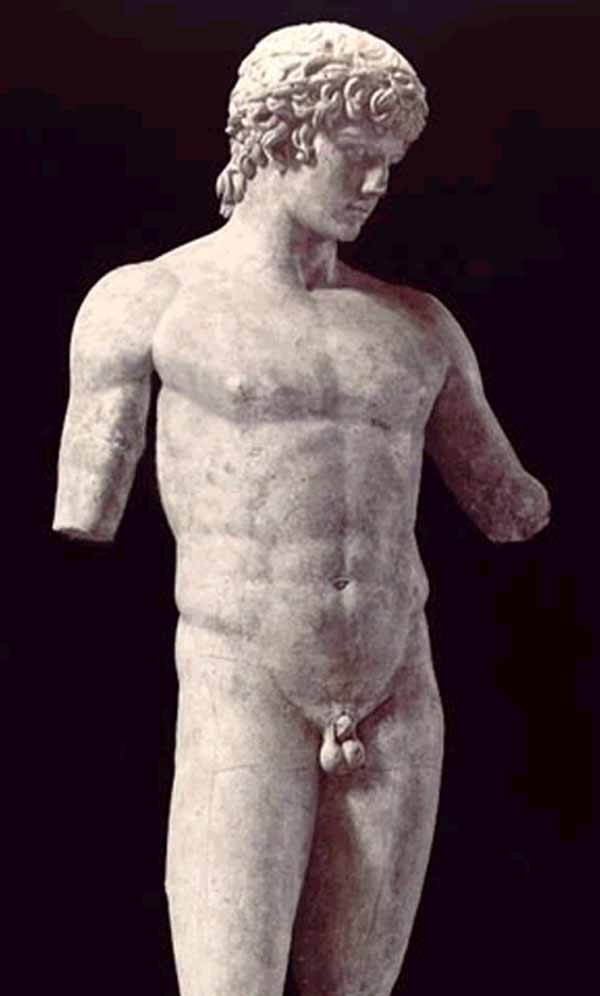
But we need to understand that though Hadrian was very public about it, he wasn't unusual in his love for another man.
Every Roman emperor from Caesar forward to Commodus, with the single exception of Claudius, had "boyfriends."
And five of those men -- the adoptive emperors Nerva, Trajan, Hadrian, Antoninus Pius, and Marcus Aurelius -- gave Rome the best and most sustained period of good government she ever had.
So the homoeroticism of the Thebiad was both inherent in the story -- and of course in Greco-Roman culture.
When Statius died, he was at work on another epic: the Achilleid, a re-telling of the life of Achilles from boyhood forward.
He was only able to write a couple chapters before he died.
Would that he'd had the chance to complete it.
The scenes between Achilles and Patroclus would have been dynamite.
Because he sure understood men, rage, sex, aggression, and man2man.
Like I said, Statius was a fairly typical Roman man of letters.
He was married, and it would appear happily so.
But he also understood the bonds -- those sacred bonds formed in adversity and strife -- between Men.
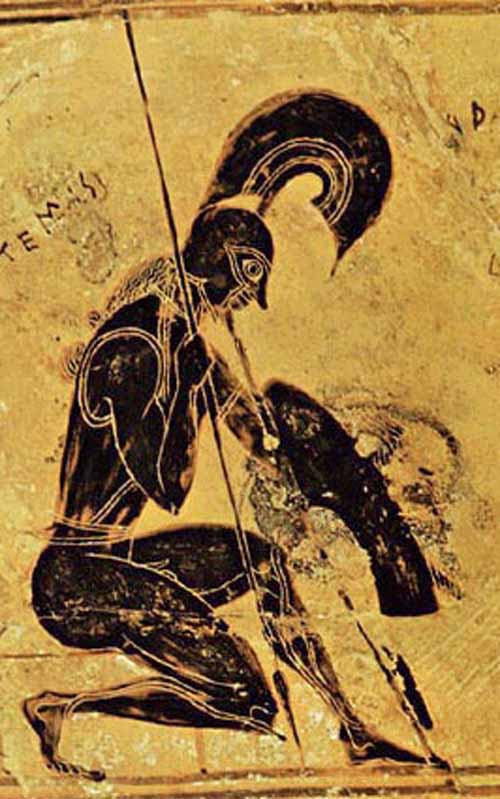
Ares -- god of war, battlelust, and manliness
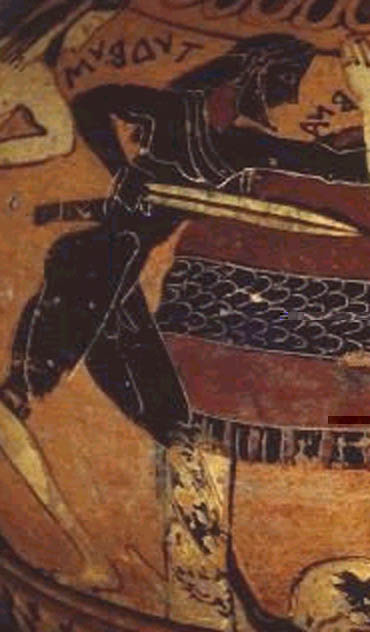
Ares' grandson Tydeus
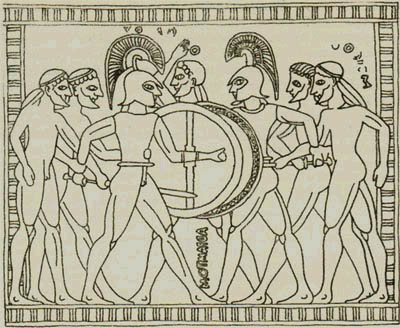
Greek Warriors ca 550 BC

Greek Warrior Boxers ca 430 BC
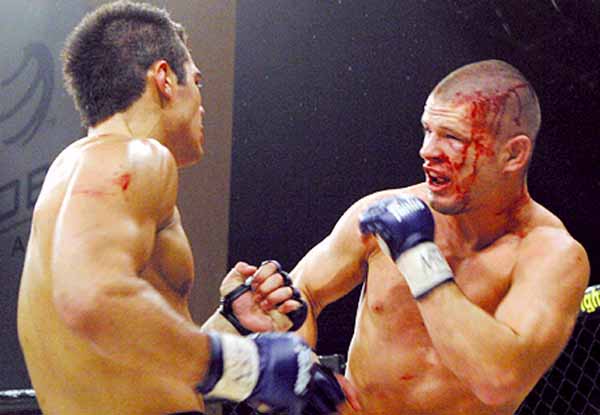
American Warrior Pankratiasts ca 2007 AD
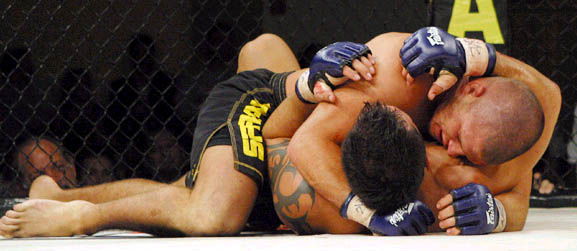
Bill Weintraub
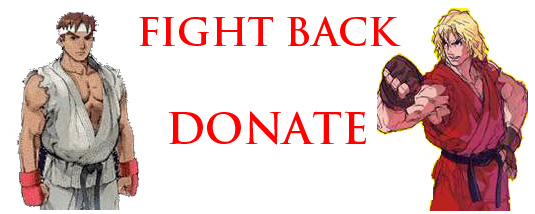
© All material Copyright 2007 by Bill Weintraub. All rights reserved.
Re: And now a few words from Publius Papinius Statius
2-10-2007
There are three follow-up articles to this one.
The Comradeship of Wounds; and
They're lavishly illustrated, and I strongly recommend that you read them all.
Years ago, in his post What It Means To Be a Man, Bill G said
Everything I've always felt, and the ideas I never thought others shared are expressed here.
The great ideals of the Homeric world and the thoughts of what it means to be a man...
That's a great summary of what we're about.
"the ideas I never thought others shared" -- we do share these ideas;
"the great ideals of the Homeric world" -- and we share those ideals
Those ideals are alive in the work of someone like Statius.
They're alive in the words of someone like Charles Eastman.
And they're alive in my heart -- and I hope in many of yours.
But they're not common in our culture.
Which means that you really benefit from experiencing those ideals on this site.
I say in The Comradeship of Wounds that "being determines consciousness."
Which is true.
Speaking for myself, when I read someone like Statius, I'm lifted up.
When I watch TV, I'm cast down.
So when I put together pages like these, they're basically my gift to you my fellow Warriors.
I hope you'll read them, and take the lessons there offered to heart.
Bill Weintraub
February 10, 2007
© All material Copyright 2007 by Bill Weintraub. All rights reserved.

|
The Greek hero Tydeus.
Tydeus is a great and formidable fighter.
Notice the prominence of the genitals, and in particular the ball sack.
The Greeks were very clear about the relationship between sex and aggression.
And between aggression, honor, and virtue.
What the Romans later conceptualized as
Vir -- Virilis -- Virtus: Man -- Manliness -- Manly Virtue

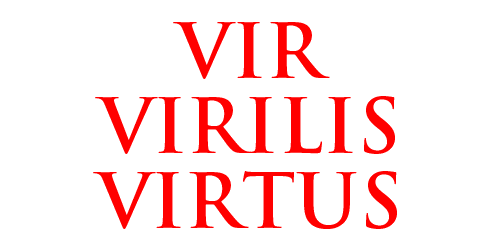
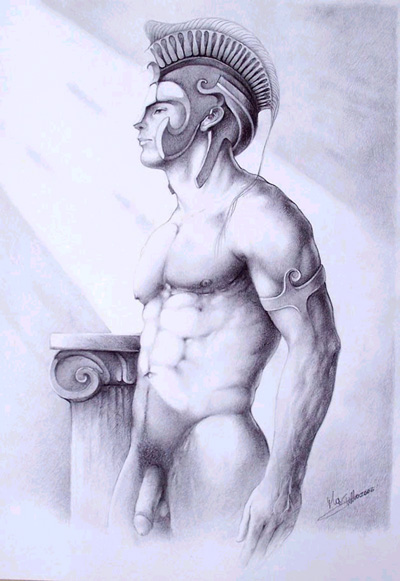
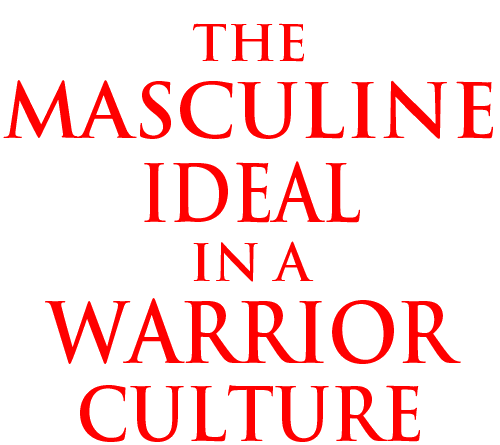
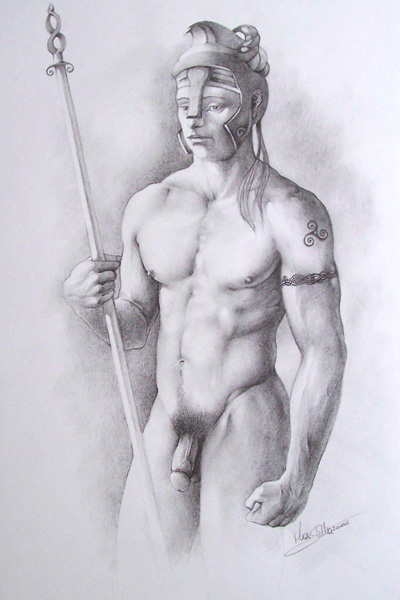

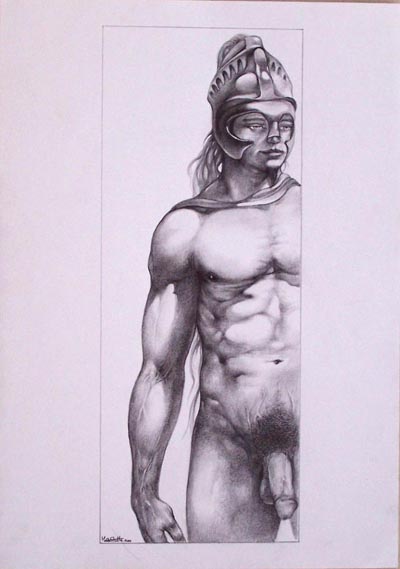
Add a reply to this discussion
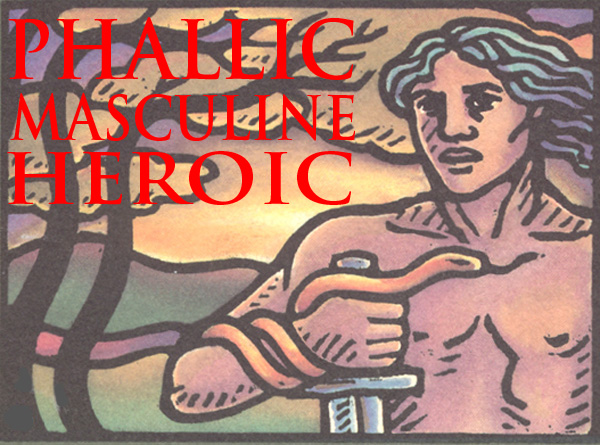



AND


HEROES is presented by The Man2Man Alliance, an organization of men into Frot
To learn more about Frot, ck out What's Hot About Frot
Or visit our FAQs page.

| Heroes Site Guide | Toward a New Concept of M2M | What Sex Is |In Search of an Heroic Friend | Masculinity and Spirit |
| Jocks and Cocks | Gilgamesh | The Greeks | Hoplites! | The Warrior Bond | Nude Combat | Phallic, Masculine, Heroic | Reading |
| Heroic Homosex Home | Cockrub Warriors Home | Heroes Home | Story of Bill and Brett Home | Frot Club Home |
| Definitions | FAQs | Join Us | Contact Us | Tell Your Story |

© All material on this site Copyright 2001 - 2011 by Bill Weintraub. All rights reserved.
